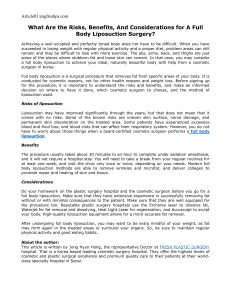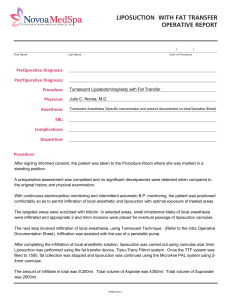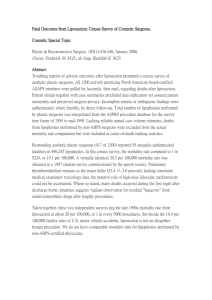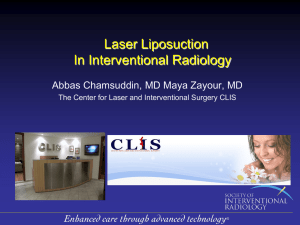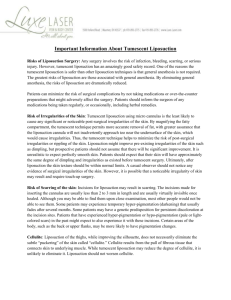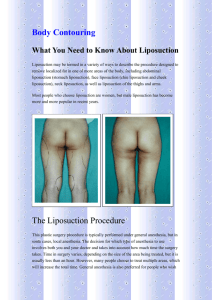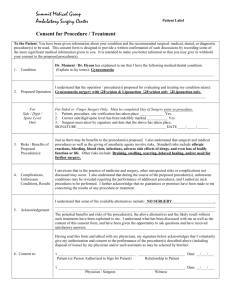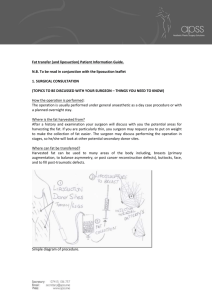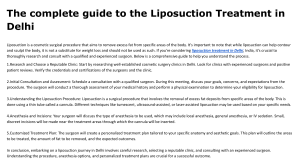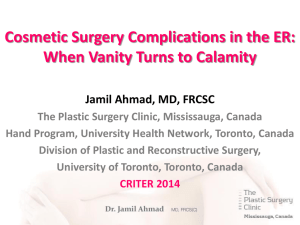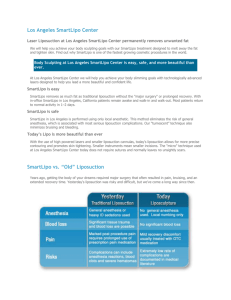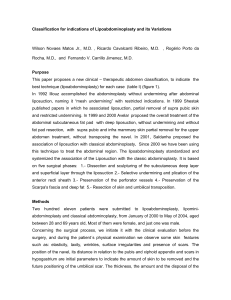Specific Risks of Liposuction - Curtis Wong MD
advertisement
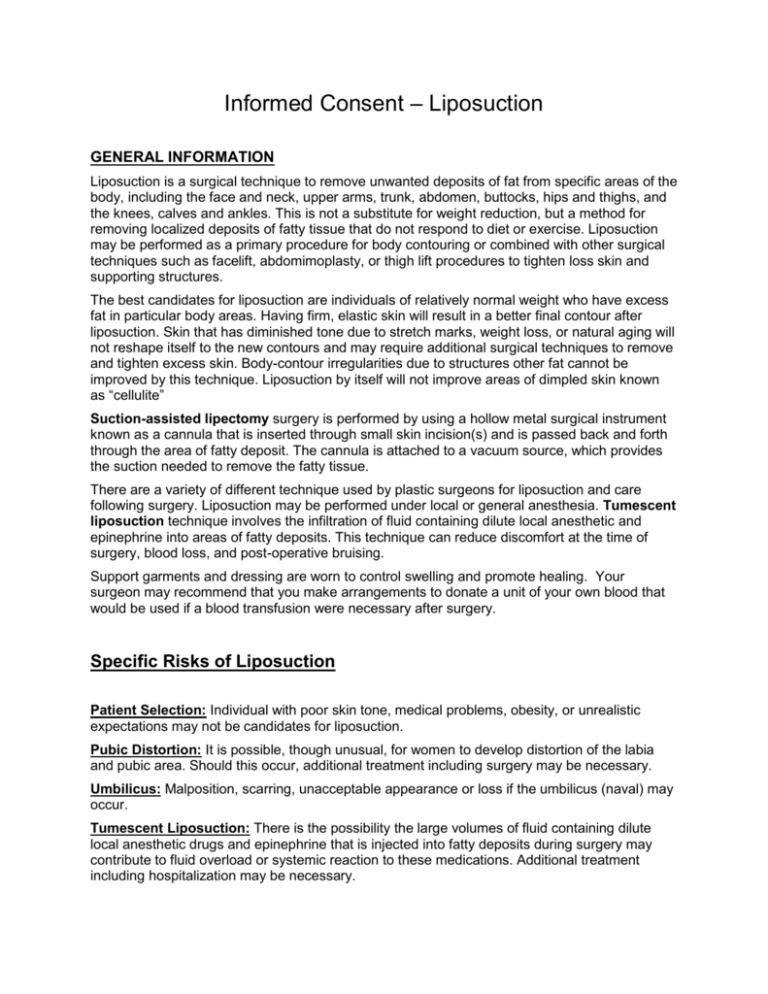
Informed Consent – Liposuction GENERAL INFORMATION Liposuction is a surgical technique to remove unwanted deposits of fat from specific areas of the body, including the face and neck, upper arms, trunk, abdomen, buttocks, hips and thighs, and the knees, calves and ankles. This is not a substitute for weight reduction, but a method for removing localized deposits of fatty tissue that do not respond to diet or exercise. Liposuction may be performed as a primary procedure for body contouring or combined with other surgical techniques such as facelift, abdomimoplasty, or thigh lift procedures to tighten loss skin and supporting structures. The best candidates for liposuction are individuals of relatively normal weight who have excess fat in particular body areas. Having firm, elastic skin will result in a better final contour after liposuction. Skin that has diminished tone due to stretch marks, weight loss, or natural aging will not reshape itself to the new contours and may require additional surgical techniques to remove and tighten excess skin. Body-contour irregularities due to structures other fat cannot be improved by this technique. Liposuction by itself will not improve areas of dimpled skin known as “cellulite” Suction-assisted lipectomy surgery is performed by using a hollow metal surgical instrument known as a cannula that is inserted through small skin incision(s) and is passed back and forth through the area of fatty deposit. The cannula is attached to a vacuum source, which provides the suction needed to remove the fatty tissue. There are a variety of different technique used by plastic surgeons for liposuction and care following surgery. Liposuction may be performed under local or general anesthesia. Tumescent liposuction technique involves the infiltration of fluid containing dilute local anesthetic and epinephrine into areas of fatty deposits. This technique can reduce discomfort at the time of surgery, blood loss, and post-operative bruising. Support garments and dressing are worn to control swelling and promote healing. Your surgeon may recommend that you make arrangements to donate a unit of your own blood that would be used if a blood transfusion were necessary after surgery. Specific Risks of Liposuction Patient Selection: Individual with poor skin tone, medical problems, obesity, or unrealistic expectations may not be candidates for liposuction. Pubic Distortion: It is possible, though unusual, for women to develop distortion of the labia and pubic area. Should this occur, additional treatment including surgery may be necessary. Umbilicus: Malposition, scarring, unacceptable appearance or loss if the umbilicus (naval) may occur. Tumescent Liposuction: There is the possibility the large volumes of fluid containing dilute local anesthetic drugs and epinephrine that is injected into fatty deposits during surgery may contribute to fluid overload or systemic reaction to these medications. Additional treatment including hospitalization may be necessary. Contour Irregularities: Irregularities on the surface of the skin may occur after liposuction. If it doesn’t improve with external massage, additional procedures may be required to resolve this. Fat Emboli: In extremely rare situations, fat can get into the blood stream and find its way to the lungs causing acute shortness of breath and severe distress. You must immediately go to the closest Emergency Room if you experience this. This can be life threatening. Disclaimer: Informed-consent documents are used to communicate information about the proposed surgical treatment of a disease or condition along with disclosure of risks and alternative forms of treatment(s), including hot having surgery. The informed-consent process attempts to define principles of risk disclosure that should generally meet the needs of most patients in most circumstances. This should not be considered all inclusive in defining other methods of care and risks encountered. This is not intended to define or serve as the standard of medical care. Curtis SF Wong, MD 2440 Sister Mary Columba Dr. Suite 200 Red Bluff, CA 96080 1/11
